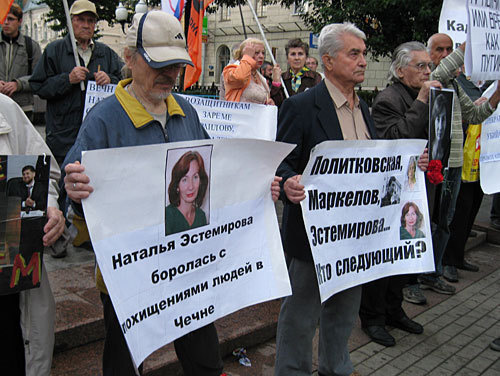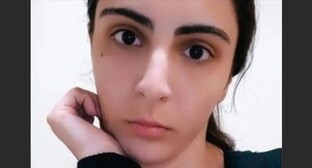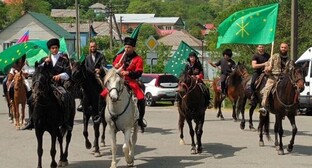
09 April 2010, 21:00
FIDH Forum participants worry that frequently under pretext of war on terror human rights are restrained
Dictator regimes make use of war on terror as a pretext for neutralizing human rights activist and political opponents. Struggle against terrorism is used for destruction of democratic freedoms. This was a conclusion made by the participants of the Congress of the International Federation for Human Rights (FIDH) within the discussion on the topic of observance of human rights in the context of fighting terrorism.
Moderator of the session Alirio Uribe, Secretary General of the FIDH from Colombia, said that terror acts committed in various regions of the world evidence absence of political strategy in the war on terror. "We need not just punishments; the strategy should cover plenty of aspects: propaganda, policy, economy and ideology. It's quite a serious issue; and we all should undertake development of this strategy," said Mr Uribe.
One of the speakers - Dan van Radmonk from Belgium noted that until now there is no clear definition of the terms "terrorism" and "extremism", and it is a huge problem. "The legal aspect of this terminology should be elaborated," said Mr Radmonk. He drew attention to the fact that tougher rhetoric of counterterrorism result in tougher phenomenon as such. Besides, according to his story, the rights of a person accused of terrorism are encroached on everywhere; they cannot find advocates, because the lawyers who try to defend them are accused of and criticized for complicity to terrorists both by state bodies and the society as a whole.
"It is interesting that Tony Blair said in due time that terror act is an ideal occasion to push the government to pass the laws, which it had long wanted but could not pass. Thus, if a foreigner appears in one of EU countries without documents, he or she will be automatically equated to a terrorist," said George Pierre Dubois, head of the French League of Human Rights.
Amal Basha, chairperson of the Forum of Arab Sisters from Yemen, said that Yemen is the most corrupted country in the world. "In our country war on terror is used for fighting against political opponents and journalists. The country was turned into prison; we have thousands of political prisoners. Here, in Armenia, people stand for liberation of 14 political prisoners; we have them in thousands. Meanwhile, our leaders reject any facts about political prisoners," she said.
A woman human rights defender from Uzbekistan, whose name was not disclosed and whom the "Caucasian Knot" correspondent was not allowed to video, said that in her country NGOs, including human rights ones are outlaws.
"Our organizations are not registered, and, as a matter of fact, our activity is considered as criminal. Now, under the slogan of the war on terror, the government has restricted the work of NGOs. Under this pretext, bank accounts of many NGOs were closed; in particular, after the Andizhan events about 200 NGOs were stopped," the Uzbek woman said. According to her story, in Uzbekistan, like in other countries with dictator regimes, the war on terror is a pretext for fighting against political opponents: under the motto of war on terror the government has thrown thousands into prisons; many of them were accused of religious extremism.
Sheron Hom, a Chinese woman human rights defender, leader of the Human Rights in China, expressed a similar point of view. "In our country, they began the war on terror in order to toughen the control over NGOs and journalists. Many international organizations, including the United Nations, don't want to notice human rights violations because of possible great investments into China. Under the lee of war on terror many laws control the financial flows received by NGOs. Under the shelter of this war, human rights activists are thrown into prisons," she said.
Aziza Abdirasulova, head of the Centre for Defence of Human Rights of Kirghizia, said that in 2009 in her country four persons accused by the court of terrorism were executed. However, in the course of judicial investigation their guilt was not proved: neither act of terror committed by them, nor keeping weapons and nor murdering any law enforcers. "It was just an imitation of war on terror," Ms Abdirasulova has noted.
Author: Lilit Ovanisyan Source: CK correspondent




